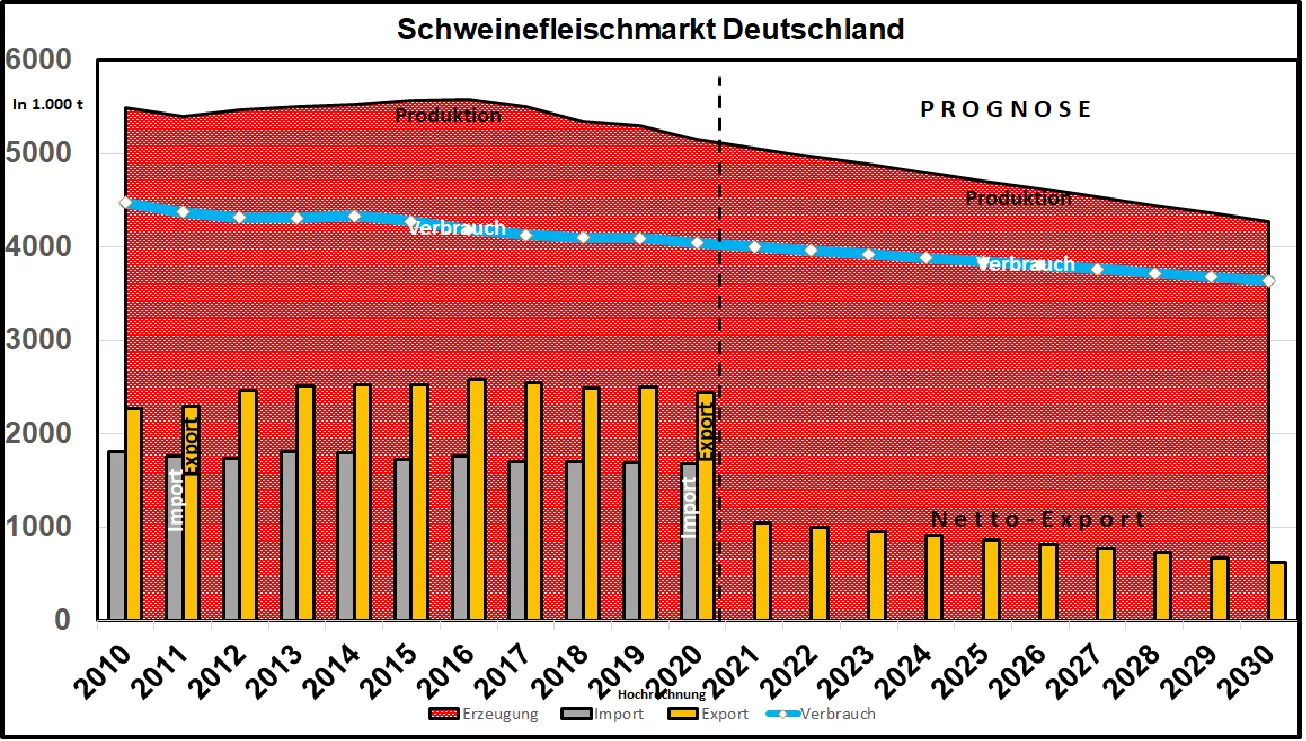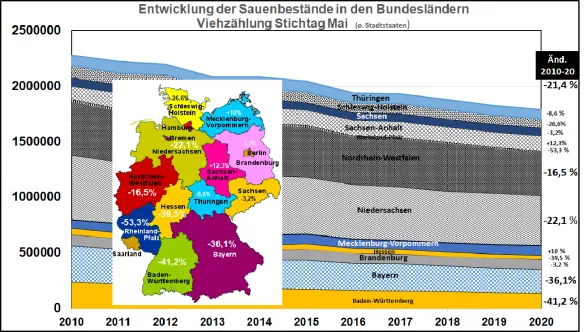Perspectives on German pig farming against the background of the animal husbandry regulations Over the past 10 years, sow farming in Germany has been around 21.4% decreased. This structural change took place primarily in the southern German states of Bavaria, Baden-Württemberg, Rhineland-Palatinate and Hesse, which have lost between 40 and 50% of their sows in the peas. But also in the strongholds of German pig farming in Lower Saxony and North Rhine-Westphalia the number of sows is around 20% liked. The state of Schleswig-Holstein also reports high losses of 25%. The decline in German sow husbandry was partly offset by higher piglet yield , but not in full. The missing offspring in the amount of the current 12 million piglets or approx. 20% of the demand comes mainly from the Danish and Dutch imports.The new animal husbandry regulation will accelerate the depletion of sows due to the high conversion costs. Smaller and unprofitable stock units in particular will completely stop piglet production due to economic considerations. With the larger sow herds the alterations of building code or spatial reasons may result in the tendency toward reduction. An increase in inventory is a reason for exclusion from government subsidies for the renovation. The public funds of € 300 million made available may seem extensive at first glance, but in relation to the current sow places of € 1.77 million they are just € 170 per place . The conversion costs are in the order of several 1,000 euros, not to mention the loss of income during and after the conversion phase.Assuming only a continuation of the previous population reduction for the coming decade, only 1.24 million sows will be kept in Germany in 2030. With 22 slaughter pigs raised per sow and year, only 27.3 million fattening pigs of domestic origin are available. So far there have been almost 35.6 million slaughter animals . An even larger than assumed inventory reduction in the future cannot be ruled out. Assuming that the number of fattening pigs continues to shrink by 8% - as in the past 10 years - approx . 4 million animals less needed for slaughter . From the development lines of piglet or fattening pig production shown it follows that the piglet deficit could increase from 12 million to 16 million animals . Pig farming in Denmark and Holland is already severely limited for environmental reasons.The additional German piglet needs can hardly be covered in full. However, higher German piglet prices could divert some of the Danish deliveries to Poland. Other neighboring countries do not have the potential to provide additional piglets of the required size. The German gross own production of pork has changed little in the last 10 years with 4.9 million t SG . Imports of live pigs and pork amounting to 1.7 million t are exports of approx. 2.5 million tons compared. Net exports have increased by 10% in the past 10 years. 70% of the exports went to other loss-making EU member states such as Italy, Great Britain and some Eastern European countries . Exports to third countries have recently been characterized by deliveries to China .The high level of exports to the Middle Kingdom will continue for a few years, but will drop significantly towards the end of the next decade. Domestic consumption of pork fell from 4.48 mln t to 4.1 mln t SG and human consumption was reduced from 40.2 to 36.5 kg per capita. That is a decrease between 8.5 to 9%. %. The level of self-sufficiency rose from 110% to 119%. If one assumes a similar decline in consumption as in the past for the coming decade, a consumption level of 3.73 million tons or 33.2 kg of human consumption per capita is calculated for the year 2030. This would require 39.4 million slaughterings without taking foreign trade into account for average carcase weights. With all caution towards the figures, the tendency of a further decline in German pig farming should become clear, which is accelerated by the animal husbandry regulation.



